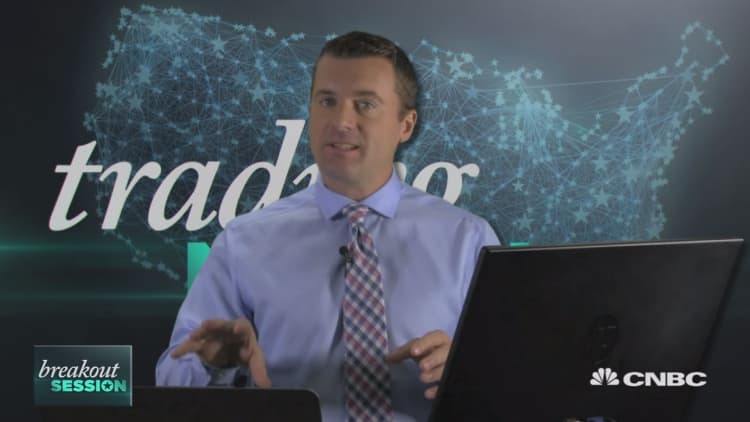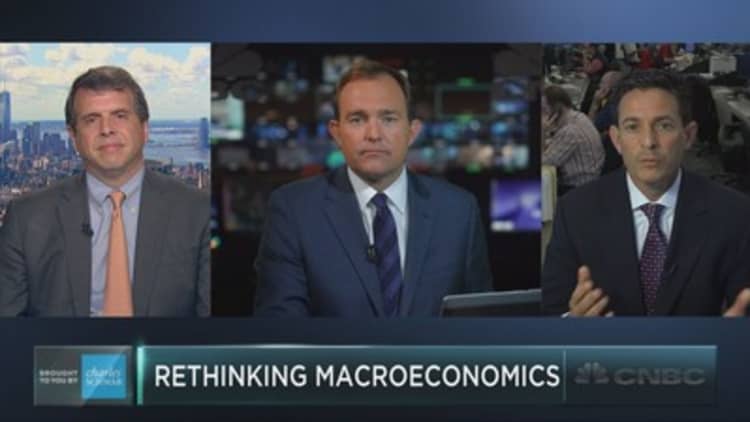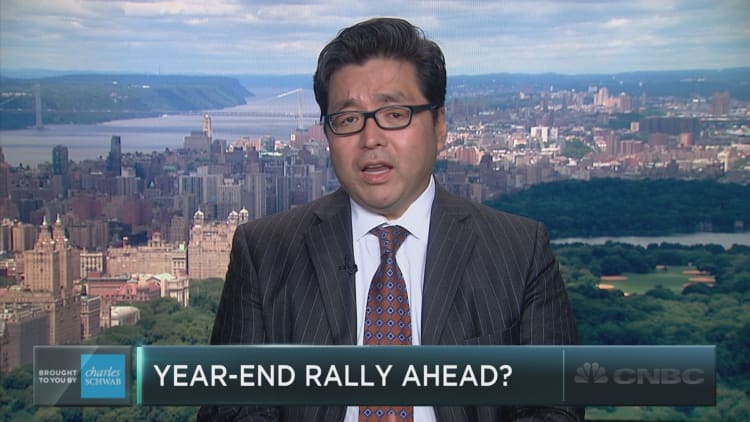


Apple shares are slipping on Monday, after enjoying an incredible surge last week, but one trader sees a big opportunity to make money on the tech giant's next move.
Excitement over the iPhone 7 launch helped Apple shares to add 11.3 percent last week, for the stock's best week since 2011. But Todd Gordon of TradingAnalysis.com thinks that the shares may "run out of the supply of natural buyers," meaning there will be "no one left to push the stock up and then selling will come in."
With two hours left in Monday's session, the stock is down 1.3 percent.
On the chart, Gordon sees the shares running into "a zone of resistance," he said Monday on CNBC's "Trading Nation," noting that the stock will have trouble rising above $116 in the days ahead.
To capitalize on his view that Apple isn't going higher, Gordon plans to sell a call spread — a trade in which one call is bought, while a higher-strike call is sold. This structure gives the trader an immediate premium from selling a more expensive option than he is buying.
In this specific case, Gordon buys the October 118-strike call and sells the October 114-strike call for about $1.60 per share, or $160 per options spread. If Apple closes below $114 on October expiration, he gets to keep that money. However, If Apple shares close above $118, he will lose $240 if he holds the trade to expiration.
"It is a skewed reward-to-risk ratio, but by selling call spreads above the market, we have a higher probability of success," he said.
Gordon plans to get out of the trade if the stock moves above $116.50, since that will disprove his theory that $116 will serve as resistance.





